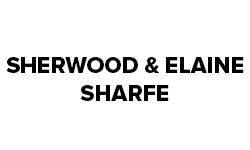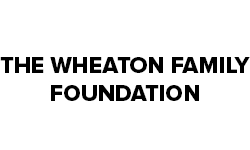CITIZENSHIP STUDIES GRADE 9: LIFELONG LEARNING CITIZENS
Part A
Broad Area of Citizenship
Overview of Citizenship Study
Grade 9 students continue to add to their understandings regarding the complexities of diversity, the impact of humans on the environment and the processes for decision making in the democratic process. Study in this grade examines the Roots of Society and connects students with historical perspectives of early societies so that students can have a better understanding of the role that history plays on present societal structures.
Students compare differing historical perspectives to acquisition of wealth and use of resources and examine the effects of societal worldview on economic practices. Economies, impacts of trade, transportation and technology are compared across societies. Students are asked to think about the impact of lifestyle choices on natural environmental issues occurring at local, national, and global levels.
Enduring Understandings of Citizenship Study
Students will understand that:
- History and current events are understood through diverse historical perspectives.
- Democracy requires discussion and consideration of alternate points of view in order to find a balance between individual perspectives.
- Citizens value the needs of the collective common good and consider how their actions impact the collective well-being.
- Canadian multicultural policies challenge citizenship tenets and require consideration of multiple perspectives.
- Canada’s history includes First Nations, Métis, and Inuit governance and perspectives and each have contributed to Canadian identity.
- Decision-making is a complex process with far-reaching impacts.
- Engaged citizens strive to be knowledgeable, uphold their rights, and act on their responsibilities.
- Enduring understandings are the big ideas that stimulate thinking, guide the inquiry and are linked to outcomes.
- Essential questions point to the “big ideas’ in the inquiry and should be considered and reconsidered as the inquiry progresses.
- Answers to these questions form the evidence of learning at the end of study.
Knowledge and Skill Development
- Examine and seek to understand diverse historical perspectives.
- Consider the inequities of power and authority that can accompany diversity.
- Understand the importance of and develop skills for advocacy.
- Realize the value of lifelong learning.
Essential Questions
- How do you determine fairness?
- What influences your decision-making?
- How large is your sphere of influence and what can you control?
- What is the relationship between the natural environment and the development of society?
- What responsibilities come with affirming a multicultural society?
Curriculum Outcomes and Indicators
Sask. Curriculum Outcomes: Student Friendly Outcomes
Outcome:
IN9.4
Determine the influence of worldview on the choices, decisions, and interactions in a society.
Student Friendly: Look at how a society’s perspective might influence choices, decisions and interactions within that society.
Indicators
- Explain the influence of worldview on personal choices, decisions, and interactions (e.g., choice of friends, choice of fashion, the significance of education, participation or non-participation in events, choice of pastimes and recreational activities, approaches to nature and ecology, approaches to consumerism).
- Analyze the influence of worldviews upon attitudes toward territorial expansion, colonization, or empire-building in the societies studied, and assess the impact of such activities on the indigenous cultures and peoples.
- Explain how the worldview of Canadian First Nations, including the value placed on harmony and trust, led to the signing of Treaties.
- Judge the influence and impact of worldview on the progress or decline of the societies studied.
RW9.1
Compare differing perspectives regarding the acquisition and distribution of resources and wealth in the societies studied.
Student Friendly: Look at the different ways that societies acquire and distribute wealth.
Indicators:
- Investigate the strategies used to acquire and distribute resources in the societies studied.
- Compare the perspectives regarding the distribution of resources in the societies studied, and assess the results in terms of consequences for the populations of the societies.
- Research the processes for decision making regarding production and distribution of wealth and resources in the societies studied.
- Infer the values of the societies studied according to the categories of acquisition and distribution of resources and wealth.
RW9.2
Appraise the significance of trade and transportation in the development of the societies studied.
Student Friendly: Critically view ways in which trade and transportation have affected the development of society.
- Analyze the impact of physical geography on modes of transportation in the societies studied.
- Investigate motives for trade, approaches to trade, and trading patterns of societies studied, to assess the effects on the economy and prosperity of that society.
- Compare the prosperity of societies studied, and infer reasons for similarities and differences.
- Assess the importance of trade relations and transportation systems for prosperity in the societies studied, and make generalizations with reference to contemporary Canada.
RW9.3
Determine the influence of technologies of past societies studied on contemporary society.
Student Friendly: Look at the ways that technology in the past might affect society today.
Indicators
- Illustrate on a timeline the significant scientific, mathematical, technological, artistic, and cultural achievements of past societies.
- Explain the impact of tools and other technologies developed in past societies on the economies and lifestyles of those societies.
- Discern the influence of the tools and other technologies of one society studied upon another society studied.
- Represent achievements and technologies of the contemporary world that have their origins in the achievements and technologies of societies studied (e.g., weapons, dyes, medications, tools, transportation methods, navigation instruments, architecture, printing, mathematics).
© 2024 Concentus Citizenship Education Foundation Inc. All Rights Reserved.









